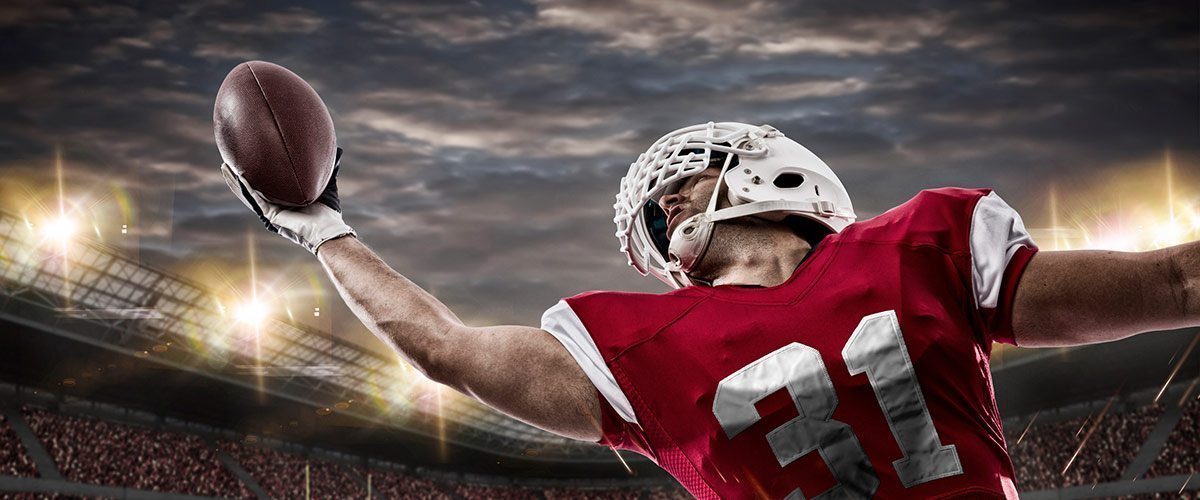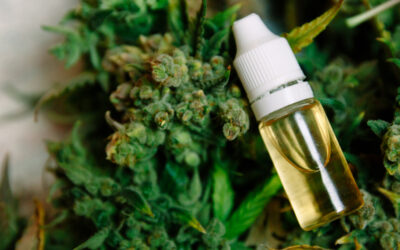Dean Petkanas and Thoma Kikis discuss the potential role cannabidiol (CBD) can play in the protection and treatment of NFL players from brain injury.
What would it take for Kannalife™ Sciences to work with the NFL to put a stop to the out of control rate of concussions and chronic traumatic encephalopathy (CTE) in the league?
“A phone call. That’s it,” says Dean Petkanas, CEO of Kannalife™ Sciences in a recent profile by Sports Illustrated.
Despite numerous calls by former and current players to adopt a new policy on medical marijuana use in the NFL, the league has remained stubbornly stuck to their ways in the face of a 96% rate of CTE among players.
Kannalife™ Sciences sees another way to go about it. The company holds a license to develop cannabinoid-based pharmaceutical treatments for CTE under the National Institutes of Health patent #6,630,507, “Cannabinoids as antioxidants and neuroprotectants”.
Petkanas and Kannalife™ founder Thoma Kikis spoke with Sports Illustrated’s Ben Baskin about ways their company intends to use the NIH’s patent to help prevent and treat what has become the primary concern of the NFL and its players in recent years.
“We’re thankful that this leading sports website is bringing light and awareness to how Cannabis, including both THC and CBD, could be a leading therapeutic approach for treating and preventing brain injuries that plague a high percentage of current and retired NFL football players and all athletes participating in concussion-related sports,” said Dr. Stuart Titus, CEO of Medical Marijuana, Inc., which is invested in Kannalife™ Sciences.
Kannalife™ Sciences is a biomedical research company dedicated to the use of the ‘507 patent to develop novel treatments for neurological diseases. When Petkanas and Kikis resolved to enter the cannabis industry, they decided to go the pharmaceutical route where they would be able to make most significant change.
Petkanas, after four months of researching, discovered hepatic encephalopathy (HE) as a potential target for their efforts. When he took it to Kikis, Petkanas had no idea that Kikis’s father had been diagnosed with HE or that Kikis had spent time with his father in the hospital due to the illness just the week before.
Kannalife™ Sciences went to work studying the effects of cannabinoids, focusing on non-psychoactive cannabidiol (CBD). At first, the company placed their effort into HE, for which they have an exclusive license on the ‘507 patent. However, they soon realized that CBD could be effective for a number of neurodegenerative diseases, including CTE.
“We know that CBD is neuroprotective,” Kinney says. “We have seen effects in both protecting against cell death and increasing cell viability… We think CBD could protect the neurons from future injury and also help them repair.”
In simpler terms, CBD is capable of defending brain cells during trauma. By 2014, Kannalife™ Sciences had secured a license to develop a treatment for CTE as well.
The development of a CBD-based pharmaceutical to prevent and treat CTE should be big news for the NFL.
“CBD has an amazing amount of potential,” says Dr. Bill Kinney, the chief scientific officer of Kannalife™ Sciences. “Think about this: What if a football player could just take a pill that is non-psychoactive before the game and now have a greater level of protection against brain injury? What could be better than that?”
Kannalife™’s laboratories are located in the Pennsylvania Biotechnology Center in Doylestown, Pa., a shared space where their researchers are working to develop CBD into pharmaceuticals. Kannalife™ Sciences has partnered with Dr. Ron Tuma and Dr. Sara Jane Ward, professors at Temple University who have been researching CBD as a neuroprotective agent for years.
“With CTE, and other injuries to the central nervous system, inflammation plays a very important role in exacerbating the injury,” Tuma says. “So it’s the interaction of cannabinoids with the inflammatory process that gives us the hope that it will have therapeutic benefit.”
The team has developed a synthetic form of CBD that they hope will benefit athletes competing in contact sports and others who have suffered concussions. The new compound, KLS-13019, is up to 500 times safer and 50 times more potent than naturally occurring CBD, and the body is 10 times more able to absorb the compound.
“Imagine if you had a molecule that is structurally different than CBD, so it’s not a controlled substance, but still has that same benefit of neuroprotection,” Kinney says. “That is something the NFL could wrap its arms around.”
Kannalife™ Sciences approached the NFL years back with an information packet presenting the benefits cannabinoids could offer the league, including its efficacy, non-psychoactivity and no potential for abuse, and ability to pass NFL drug testing restrictions. However, Petkanas and Kikis never heard back.
For now the company continues to push on pursuing its development of a treatment for CTE. With up to 3.8 million sports-related concussions in the U.S. annually and the rate of brain injury among children doubled, there is a distinct need to protect the brains of athletes. However, there is also a need for CTE treatments outside of athletics. The military saw an estimated 300,000 cases of traumatic brain injury from 2001 to 2010, and as a total population, there were 2.5 million hospital visits for traumatic brain injury in the U.S. in 2010.
Medical Marijuana, Inc. has supported CTE research and awareness in the past when it started the Show Your Green and Treat CTE campaigns in late 2015. Marvin Washington, Kannalife™ spokesperson and former NFL player, joined a panel on ESPN’s Outside the Lines where he discussed the significance of CTE for NFL players and urged the NFL to contact him or Kannalife™ Sciences to work together to end the high rates of CTE in NFL players.
To learn more about chronic traumatic encephalopathy, visit the Medical Marijuana, Inc. education page.






